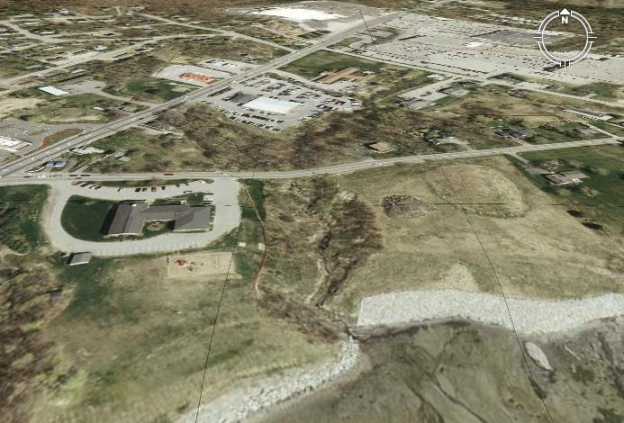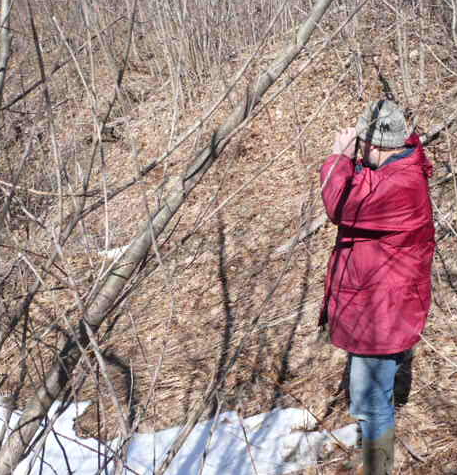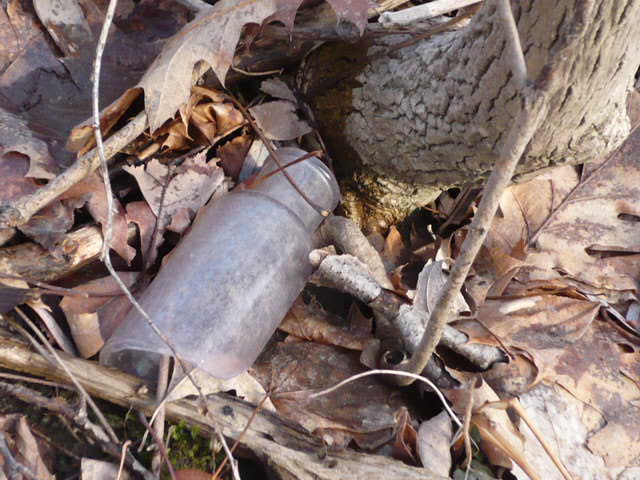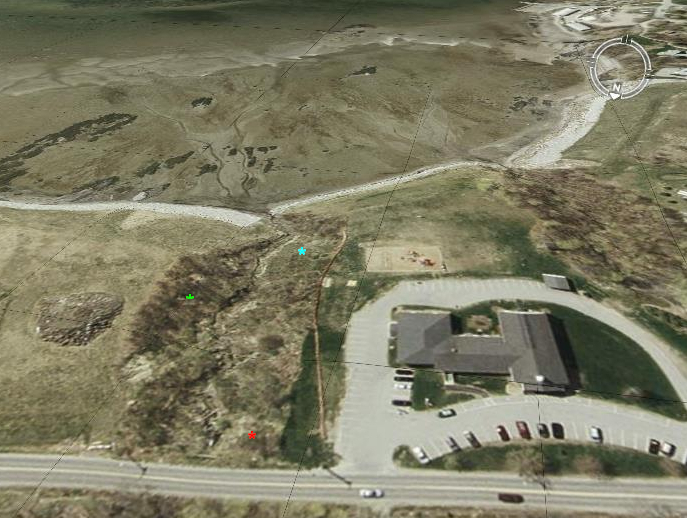
Native American Indian camp discovered in Rockland ravine; historic find to be protected during fill of ravine .
The Maine State Archaeologist recently examined a ravine on the northwest edge of Rockland Harbor;
his initial look leads him to believe a summertime Indian encampment may have occupied the site in the late 19th and early 20th centuries. If confirmed, it would be the first coastal Indian campsite of that era to be found and examined in midcoast Maine. Listen to audio excerpts from the ravine visit. (mp3)

Arthur Spiess' tentative findings confirm the recollections of a retired local fisherman Herbert Hoche who visited the trading post-type camp several times as a child in the 1940s. The Indians, evidently Penobscots and Passmaquoddies, lived at the site each summer, at the top of a ravine and stream runs down to the northeast end of Waldo Avenue, (then part of Samoset Road) fished and clammed, and sold handmade basketry and other craft items to tourists passing their camp en route to the Samoset resort, as well as to area residents.
But the artifacts would have been lost to researchers, unless the city of Rockland and a local Church had modified their plan to fill the ravine, which abuts the Littlefield Baptist Church on Waldo Avenue. See media coverage

Spiess and Penobscot Bay Watch organizer Ron Huber gained permission from Littlefield Baptist Church pastor Pastor Branan Becknell to examine the ravine, which is fenced off from the church's parking lot. They visited the site March 17th, traveling its length from Waldo Avenue to the harbor flats and back up the other side.

While the east side of the ravine (the mound side) had few if any artifacts, the west side showed an abundance of historic materials especially near the top of the ravine closest to Waldo Avenue on the church side. The guess as to why artifacts are found on the surface, with no more than fallen leaves covering them, is that the remains of the camp were bulldozed into the ravine when the church parking lot was built in the 1970s. Arthur concluded the artifacts he found are consistent with Herbert Hoche's recollection of an Indian encampment there.
Additionally, continuing along that side of the ravine toward the harbor, he observed natural hummocking of its top area, indicating it hasn't ever been filled in. Lots of stickerbushes; we did only a brief inspection but did discover artifacts there.
Dr Spiess wrote Rockland city manager Tom Hall of his findings:
"Yesterday I had the opportunity to examine the ravine and culvert under Waldo Avenue adjacent to Pen Bay Christian School, to follow up on reports of a Penobscot Indian summer camp at the location dating before WWII," "In fact, there is a scatter of broken bottles, household crockery, glassware and so forth in the wooded margin of the ravine, just south of Waldo Ave. and immediately east of the school lawn."
"The material appears to date from between 1880 and about 1930 or 1940, which is probably the trash scatter from the seasonal camp," he wrote. "The camp itself must have been located under what is now the school lawn and perhaps a part of the parking lot." According to an article in the Rockland Courier Gazette "The [Rockland City] council is expected to formally vote at its March 31 meeting to authorize the use of city money for the project."
 "...the Rockland city councilors expressed support for the city spending money to complete a project that will shore up the gulley. The church has sought to have the gully project done since a 1996 landslide destroyed two homes nearby on Samoset Road. A landslide in 1973 also resulted in the loss of a large amount of land on Waldo Avenue."
"...the Rockland city councilors expressed support for the city spending money to complete a project that will shore up the gulley. The church has sought to have the gully project done since a 1996 landslide destroyed two homes nearby on Samoset Road. A landslide in 1973 also resulted in the loss of a large amount of land on Waldo Avenue."